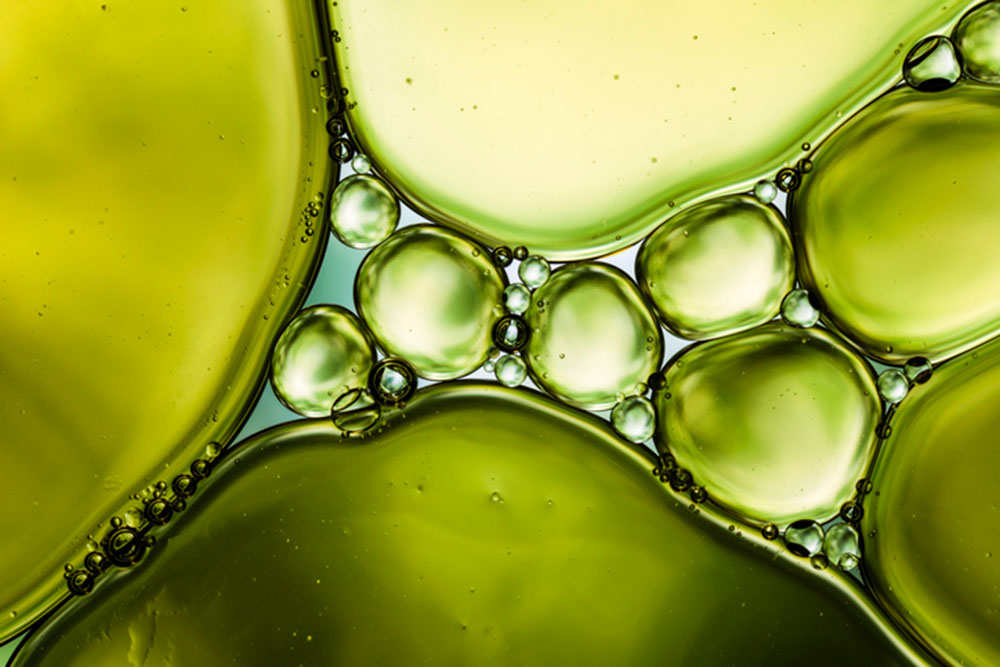
iStock
PERSISTENT WARNINGS that cooking with olive oil releases dangerous chemicals perpetuate a myth, despite contradictions from research now dating back several years. The studies’ conclusions also upended age-old wisdom that cooking with oils rich in polyunsaturated fats, such as corn and sunflower, is better for the health than the saturated fats in animal products.
Heating an oil to the point of breakdown diminishes its healthful components and releases unhealthy ones into the environment. Two variables affect an oil that is being heated: smoke point, the temperature at which it begins to smoke and break down; and oxidative stability, its ability to resist that breakdown process.
Extra virgin olive oil, despite its comparatively low smoke point of 410 degrees Fahrenheit, has strong oxidative stability. Derived from the first pressing of olives, this “superfood” is the least processed and most healthy of oils for cooking and eating.
Cheaper, more refined oils —corn, safflower, sunflower—have higher smoke points because the refining process has removed ingredients that cause it to smoke. But as in the case of “light,” more refined, olive oil, most oils with higher smoke points have fewer nourishing ingredients. In addition, heating most of these oils releases into the air high concentrations of aldehydes that have been linked to illnesses including cancer, heart disease and dementia. Simply standing in a kitchen as these oils are used can cause harm.
Roasting, sautéing and frying —except deep-frying—are rarely done at temperatures above 400 degrees. But even at higher temperatures, the healthy advantages of olive oil diminish only to the starting levels for cheaper oils, including “light” olive oil, which has a smoke point of 468 degrees F.
Even under prolonged cooking, olive oil is usually equal or superior to more refined vegetable oils, according to researchers at the University of Porto. Prolonged heating at high temperatures can degrade its health benefits to the level of other oils that can sustain higher cooking temperatures but do not begin with the same benefits.
For economic reasons, many people choose to start with lower grade, less expensive oils and then add higher grade extra virgin olive oil later in the cooking process —or use it intermittently throughout cooking.
The oxidative stability of olive oil comes from its high proportion (73%) of monounsaturated fatty acid (MUFAs). At higher temperatures, MUFAs keep an oil from releasing harmful toxins and allow it to retain bioactive components such as phenolic acids, including flavonoids, and vitamin E that are associated with anti-oxidant and anti-inflammatory effects.
Most more refined oils are higher in polyunsaturated fatty acids (PUFAs), which have the advantage of higher smoke points. Many of these, including canola oil, which has a smoke point of 400 degrees F, are good sources of healthy Omega-3 fatty acids, although fatty fish like salmon have higher levels as well as the most effective (long-chain) type of Omega-3s.
Coconut oil falls into the third category—saturated fatty acids—present in high levels in animal fats including butter and at 14% of fat in extra virgin olive oil. These are the most heat-resistant, although many have unhealthy disadvantages such as elevating levels of LDL cholesterol. Despite its low smoke point of 350 degrees, coconut oil is considered “very resistant” to heat because of its high saturated fat content.
Combining its levels of saturated and monounsaturated fatty acids, extra virgin olive oil contains only 13% of the less stable polyunsaturated fatty acids. The Porto researchers found extra virgin olive oil “particularly resistant to oxidation even when used for deep frying.”
To produce extra virgin olive oil, expeller pressing removes oils using a mechanical press, generating a minimal amount of heat. Cold-pressed oils are extracted with an expeller press under carefully controlled temperatures, below 120 degrees F, which helps retain healthy phenols as well as vitamin E. Thus cold-pressed extra virgin olive oil is the healthiest of the oils, but also the most expensive—which is why many cooks prefer to add it during the cooking or after it’s done.
—Mary Carpenter
Every Tuesday, well-being editor Mary Carpenter reports on health news you can use.
